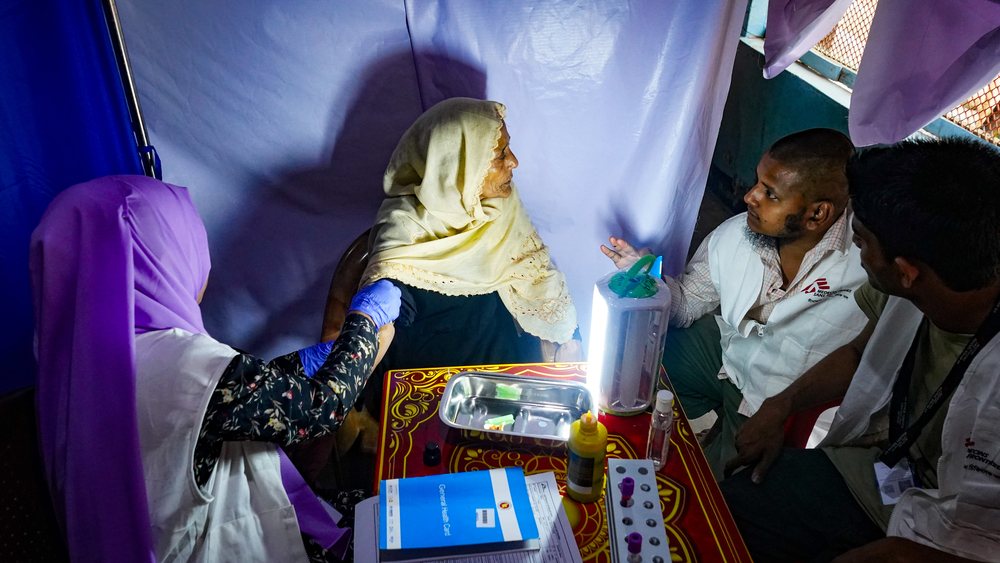Cox’s Bazar, Bangladesh – 22 May 2025 – To address concerningly high levels of hepatitis C in the Rohingya refugee camps in Cox’s Bazar, Bangladesh, 30,000 people will receive care by the end of 2026 as Médecins Sans Frontières (MSF) significantly expands its treatment programmes. The initiative improves access to hepatitis C care for a group of stateless people who are particularly exposed to this curable, but potentially fatal, disease. MSF is establishing three specialized hepatitis C treatment centres within existing health facilities inside the camps, as part of a “test and treat” campaign covering an estimated third of all people living with hepatitis C in the camps.
Between October 2020 and December 2024, MSF had treated over 10,000 people for hepatitis C at our clinics in the camps in Jamtoli and Hospital on the Hill. However, a 2023 MSF study published last month in The Lancet Gastroenterology & Hepatology found that nearly one in five adults –an estimated 86,000 people– are living with chronic active infection, highlighting the urgent need for a more robust response.
Harsh living conditions in the cramped and overcrowded camps, a lack of access to or reduced provision of healthcare, and a lack of legal status which severely restricts their basic rights, have made Rohingya refugees more vulnerable to infections –including hepatitis C– in Myanmar and Bangladesh. Our survey found that exposure to unsafe medical practices for decades, such as therapeutic injections, could be the main reason for the transmission of this bloodborne disease within the camps.

Our scaled-up programme in response sees teams conducting systematic community-based screening to proactively identify people with hepatitis C, a disease that does not show any signs or symptoms in its first phase. Rapid testing is followed by laboratory confirmation at the newly established treatment centres in Balukhali, Jamtoli, and at Hospital on the Hill. We are also implementing a comprehensive healthcare awareness campaign, which includes providing drugs for hepatitis C treatment and sharing prevention messages and treatment adherence counselling to adults.
“In the absence of other alternatives to hepatitis C care for tens of thousands of people in the camps, we are undertaking this substantial increase in our treatment capacity,” says Dr Firuz. “Our goal is to reach 30,000 people with curative care by the end of 2026. This expansion represents a vital step towards preventing the spread of hepatitis C, especially to younger generations.”
Addressing this widespread hepatitis C epidemic nonetheless presents considerable challenges within the limited capacity of the overall health response in the camps. MSF will be conducting research to analyse such challenges and bring about solutions as part of its response.












